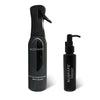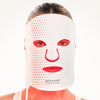Eight Everyday Strategies to Support Your Well-Being
When life turns into a blur of appointments, tasks, and mental clutter, it's easy to stop feeling like yourself. But wellness doesn't have to mean overhauling everything at once. Often, it starts with paying attention to small shifts—the kind that don’t require a membership, guru, or perfect schedule. This is about day-to-day well-being, not a ten-step reinvention. Think of it like tuning an instrument: tiny adjustments that bring things back into harmony. The strategies below aren’t magic, but they work—and they’re a great place to begin if you’re ready to feel a little more grounded and a lot more alive.

Reducing Daily Stress with Natural Options
Stress doesn’t always crash into your life with a bang—it often seeps in slowly and makes itself comfortable. Rather than powering through it, you can begin layering small interventions that nudge your system back toward calm. Peppermint tea offers a simple sensory anchor, easing digestion and soothing your nerves in the process. Ashwagandha has gained popularity for its role in lowering cortisol levels and building emotional resilience over time. For a more contemporary approach, THCa has shown promising results in calming the mind without the psychoactive effects associated with other cannabis compounds—read up on the benefits for more information.
Incorporating Walking into a Daily Routine
Your body doesn't need punishment; it needs rhythm. Walking is underrated—it’s accessible, intuitive, and often the first thing to disappear when you’re overwhelmed. The key is not treating it like a workout but like a return to yourself. Skip the playlist sometimes. Let your brain wander. You’ll be surprised how much tension drains from your shoulders after just ten minutes of moving without a goal.
Creating Custom Fitness Trackers
A good plan is one you don’t mind changing. Designing your own tracking sheets in a simple document editor gives you total control—whether you're logging reps, meals, moods, or anything in between. Once you’ve got the structure down, converting them into PDFs helps keep everything tidy and shareable. But your goals will change. That’s why it’s smart to use tools that let you make adjustments, rotate PDF files, and remove old pages so your system stays fresh. Your routine shouldn’t trap you—it should grow with you.
Using Journaling for Mental Clarity
Thoughts pile up. Some stick around because they’ve never been written down, never spoken aloud, never fully acknowledged. That’s where journaling can do heavy lifting without being dramatic. Start with a timer and no plan. You’re not writing a memoir, you’re releasing pressure. Afterward, you don’t have to read it—you just have to notice how much lighter your chest feels.
Supporting Recovery Through Red Light Therapy
Your body can’t perform if it’s constantly asked to grind. That’s not resilience—it’s depletion. Wellness isn’t just action; it’s restoration. That’s where Nushape offers a different kind of solution, using red light therapy to support recovery at the cellular level. Whether you're navigating muscle fatigue, plateaued energy, or sleep disruptions, Nushape’s products offer scientifically backed support that works quietly in the background. When you stop chasing and start repairing, you begin to move with power instead of panic.
Improving Sleep Through Simple Adjustments
Most people don’t need a more complicated morning. They need a better night. Sleep is the great restorer, but only when you treat it like a priority instead of an afterthought. Wind-down routines matter—dim the lights, ditch the scrolling, and give your brain a signal that it’s time to release the day. Temperature, darkness, and consistency all matter more than perfection. You don’t need to aim for 8 hours right away. You just need to stop treating exhaustion like a personality trait.
Practicing Breathwork for Nervous System Balance
You’re breathing all the time, but doing it with awareness is a different skill. Breathwork won’t make your problems disappear, but it can change how you face them. Slowing your exhale taps your parasympathetic nervous system and sends a message: it’s safe to relax. You can start with box breathing, 4–4–4–4 counts, or even simpler—just notice your breath without changing it. When the world spins fast, your breath is a built-in reset button. And it costs nothing.
Managing Screen Time for Better Focus
There’s nothing wrong with being online—until it’s running your nervous system in the background. Screens are designed to be sticky, to keep you just a little distracted, just a little scattered. Giving yourself screen-free blocks of time—even 30 minutes—is like letting your brain unclench. That quiet discomfort? That’s space. Let it stretch. Your clarity lives there, buried under a hundred micro-distractions you didn’t even choose.
You don’t have to overhaul your life to feel better—you just have to move in the direction of care. One step, one breath, one small change that tells your body and mind: I’m paying attention. Peppermint tea. A ten-minute walk. A page of unfiltered thoughts. The benefits compound, not because they’re dramatic, but because they’re doable. This is how wellness becomes something you live, not something you chase. And the best part? You can start right now.
Discover the transformative power of red light therapy with Nushape and bring professional wellness solutions into your home for a healthier, rejuvenated you!
Written by Dana Brown










































































































